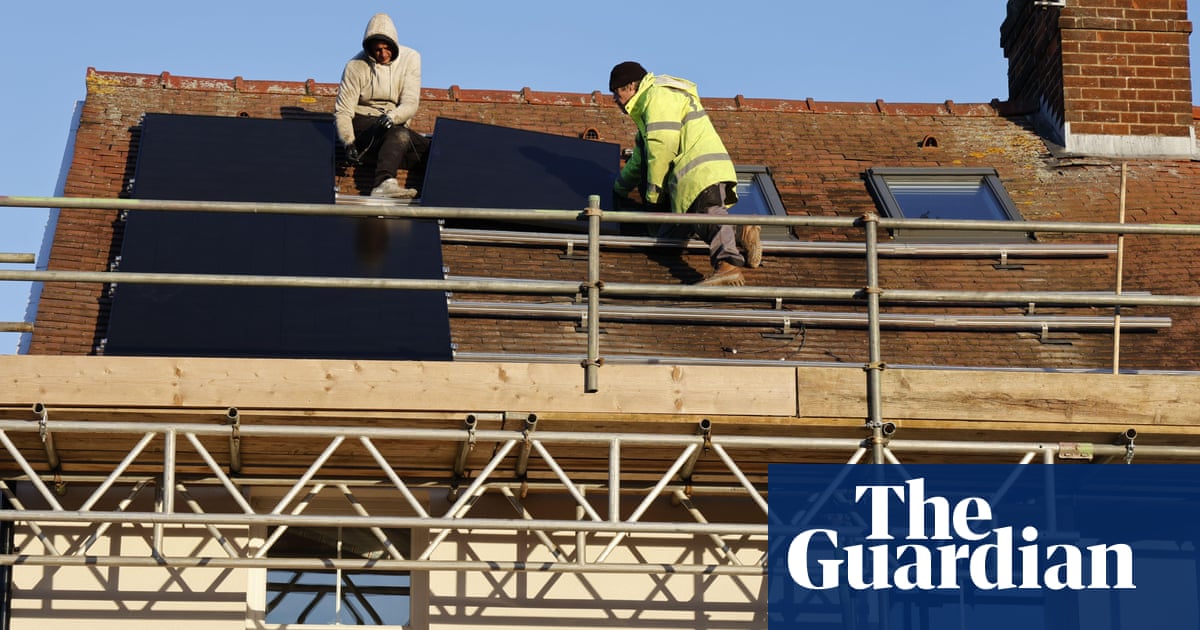The next government should force all tradespeople who install home heat pumps, solar panels and insulation to sign up to a mandatory accreditation scheme to counter mistrust in the industry, a leading consumer group is demanding.
A report from Which? found that households face “significant anxiety” in choosing tradespeople to fit low-carbon heating systems, such as heat pumps, and insulation after “press stories about poor work and rogue traders”.
It said 45% of households report that they do not know what qualifications to check for when selecting a tradesperson to carry out work in their homes, and 55% find it difficult to trust the available information, including contractors’ own claims and customer reviews.
The lack of clear information and quality controls threatened to delay home upgrades that were essential if Britain was to wean households off fossil fuel heating and hit its climate targets, the consumer group said.
Under current rules, installers who undertake work through the government’s boiler upgrade and energy efficiency schemes must sign up to either the Microgeneration certification scheme or the Trustmark certification scheme.
However, installers who plan to undertake work paid for without government funds are not required to sign up to any accreditation body.
Which? has called on whoever wins the 4 July election to set a clear deadline for all tradespeople to be certified via the same schemes, and to take responsibility for their oversight in order to maintain standards.
Rocio Concha, a director at Which?, said: “Over the next few years, millions of households across the UK will make significant changes to their home heating systems – such as installing heat pumps – to make their homes more energy efficient and support lower energy costs.
“It’s essential that the right standards are in place to ensure that work is done to a good quality and people are protected against the small minority of rogue traders and cowboy builders.”
Government data shows that by the end of January this year fewer than 5,000 homes had been insulated under a scheme which aimed to insulate 300,000 homes to guard against volatile energy prices.
after newsletter promotion
Separate research from the Energy and Climate Intelligence Unit (ECIU) thinktank found that a lack of progress on insulating British homes is costing bill payers £3.2bn a year, despite recent drops in energy prices.
It reported that upgrading the average UK home with an energy performance certificate (EPC) rating of D to a C would have saved the bill payer £200 a year. For the 4.4m homes that have a rating of E or F the savings would have been between £400 to £550.
Last year, the government scrapped its target for all privately rented homes to be rated EPC C or above by 2025, in an overhaul of its net zero pledges. The ECIU said upgrading those homes alone would save those households a total of £1.4bn a year under the new prices.

